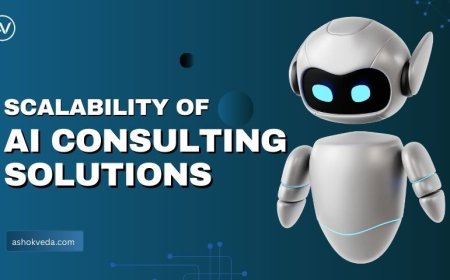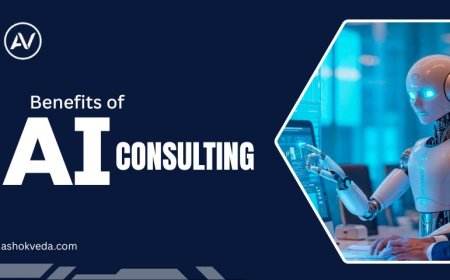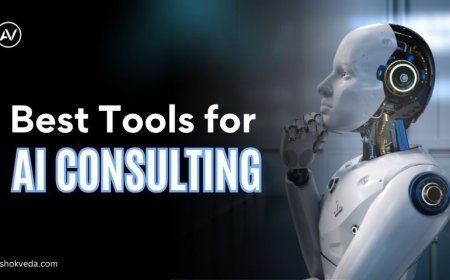Key Challenges in AI Consulting and How to Overcome Them
Understand the major challenges in AI consulting, including data, scalability, ethics, and how to navigate them for successful AI adoption
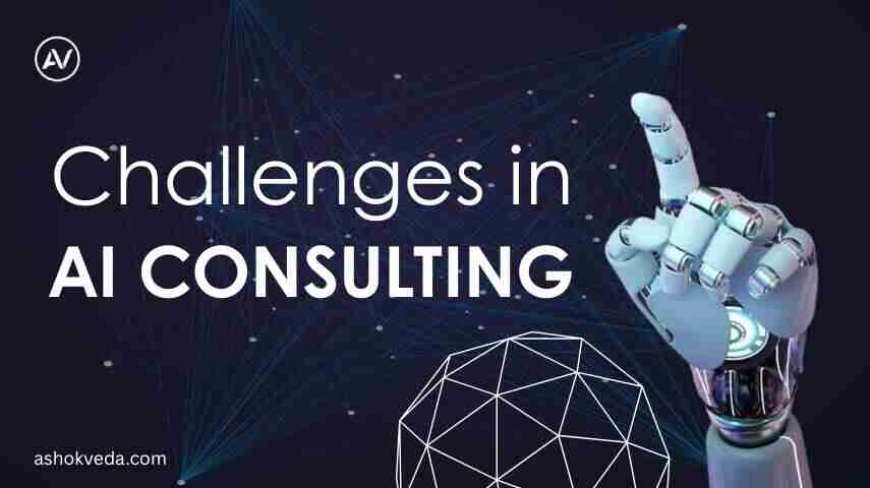
Artificial Intelligence (AI) has evolved from a futuristic concept to a cornerstone of digital transformation across industries. In 2025, the global AI market is expected to reach $407 billion, with AI consulting services playing a pivotal role in this growth. A staggering 68% of enterprises now use AI technologies in some form, and nearly 80% of C-level executives believe AI is critical to their business success. Yet, despite this enthusiasm, AI implementation is anything but smooth.
Many organizations stumble when trying to integrate AI into their workflows, and a significant reason is the complex and nuanced nature of AI consulting. Consultants are at the forefront of AI adoption—expected to translate deep technology into actionable business value. But they face a unique set of hurdles that go beyond coding and algorithms. These challenges in AI consulting can range from technical difficulties to ethical concerns, cultural barriers, and strategic misalignments.
Challenges in AI Consulting
1. Bridging the Gap Between Business and Technology
One of the biggest challenges in AI consulting is aligning AI solutions with business objectives. While companies are eager to embrace automation and intelligent systems, their understanding of what AI can and cannot do is often limited.
Key Issues:
-
Misaligned Expectations: Clients often expect immediate results or underestimate the complexity of AI integration.
-
Lack of Technical Understanding: Decision-makers may struggle to grasp core AI concepts, making it hard to communicate value.
-
Overhyped Promises: Market buzz sometimes creates unrealistic goals, leading to disappointment and skepticism.
Consultant's Role:
-
Translate technical jargon into business language
-
Use workshops and case studies to educate stakeholders
-
Set clear, realistic KPIs tied to business goals
2. Data Availability and Quality
Data is the lifeblood of AI, but not all organizations have clean, usable, or relevant data to support their initiatives.
Challenges:
-
Fragmented Data Systems: Data is often stored in siloed databases or outdated systems.
-
Low-Quality Data: Incomplete, inconsistent, or biased data leads to unreliable AI models.
-
Privacy Concerns: Regulations like GDPR, HIPAA, and India’s DPDP Act limit access to critical data.
Solutions:
-
Conduct data audits before project kickoff
-
Recommend data governance frameworks
-
Work with legal teams to ensure compliance
3. Talent Shortage and Skills Gap
AI consulting demands a rare combination of technical, business, and interpersonal skills. As of 2025, the AI talent gap remains significant, with a global shortage of skilled professionals in AI, machine learning, and data science.
Consultant Challenges:
-
Finding team members with both deep learning expertise and domain knowledge
-
Balancing technical execution with client-facing communication
-
Keeping pace with rapidly evolving technologies
Recommended Practices:
-
Continuous upskilling through certifications and hands-on projects
-
Collaborating with academic institutions and training platforms
-
Cross-training team members in both technical and soft skills
4. Project Scope Creep and ROI Uncertainty
Clients often expect AI to be a silver bullet, leading to scope creep, moving goalposts, and vague ROI metrics.
Core Issues:
-
Unclear Success Metrics: Lack of clarity on how success will be measured.
-
Scope Expansion: As new use cases emerge, project complexity increases.
-
Budget Constraints: Clients hesitate to invest more without guaranteed returns.
Strategies for Consultants:
-
Define clear deliverables and milestones
-
Use agile project management for adaptability
-
Provide incremental results to demonstrate value
5. Ethical and Regulatory Challenges
AI can amplify biases and cause unintended consequences if not implemented carefully. Navigating the ethical industry is a growing concern.
Major Risks:
-
Algorithmic Bias: Unfair treatment due to skewed data or model design
-
Privacy Violations: Invasive data usage without proper consent
-
Lack of Transparency: Black-box models that are hard to interpret
Consultant’s Role:
-
Advocate for explainable AI (XAI)
-
Establish AI ethics guidelines and governance policies
-
Engage legal advisors and compliance teams early
6. Change Management and Organizational Resistance
Even the most technically sound AI solution will fail without buy-in from users. Change management is often underestimated in AI consulting.
Key Barriers:
-
Fear of Job Loss: Employees worry that AI will replace them
-
Low Digital Maturity: Teams may lack basic digital literacy
-
Cultural Resistance: An innovation-averse mindset slows down adoption
Consultant Playbook:
-
Create change champions within the client organization
-
Run training and upskilling programs
-
Promote collaboration between humans and AI, not replacement
7. Integration with Legacy Systems
Most enterprises run on a mix of old and new tech. AI solutions often need to integrate with legacy infrastructure, which presents compatibility issues.
Typical Problems:
-
Outdated APIs
-
Limited data interoperability
-
High cost of infrastructure upgrades
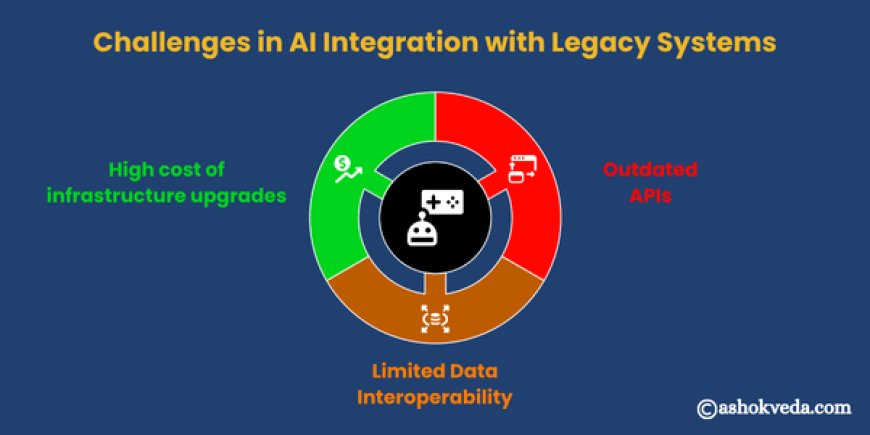
Consultant Recommendations:
-
Start with modular AI solutions
-
Use middleware and APIs for gradual integration
-
Suggest cloud-based alternatives when feasible
8. Vendor and Tool Selection
There are countless AI tools and platforms on the market, each with its pros and cons. Choosing the right tech stack is a critical and complex task.
Pain Points:
-
Overwhelming Options: Too many choices confuse clients
-
Hidden Costs: Licensing fees and maintenance can add up
-
Lack of Flexibility: Some tools are not easily customizable
Best Practices:
-
Conduct vendor evaluations and tech audits
-
Choose open-source or modular platforms when possible
-
Align tool capabilities with project needs and future scalability
9. Performance Monitoring and Model Maintenance
AI models degrade over time if not monitored. Many clients lack the internal capability to track model performance.
Long-term Risks:
-
Model Drift: Changing data patterns reduce model accuracy
-
User Feedback Ignored: Insights are not acted upon
-
No Retraining Schedule: Models become obsolete
Consultant Deliverables:
-
Set up dashboards and KPIs for monitoring
-
Define retraining cycles and thresholds
-
Educate clients on ongoing maintenance
10. Delivering Long-Term Value
AI projects must provide long-term ROI—not just short-term results. Creating sustainable impact is a core goal for consultants.
Key Considerations:
-
Embedding AI into core workflows
-
Aligning projects with strategic objectives
-
Enabling internal teams to take ownership
Consultant Action Plan:
-
Build knowledge transfer into the engagement
-
Document best practices for future use
-
Help clients set up an AI Center of Excellence (CoE)
AI consulting in 2025 is both a high-reward and high-responsibility field. The challenges in AI consulting are real—from misaligned strategies and poor data quality to ethical concerns and cultural resistance. Yet, these challenges are not roadblocks—they're opportunities for differentiation. The most successful AI consultants are those who combine technical mastery with empathy, business acumen, and strategic thinking. They don’t just deploy models—they build trust, create value, and foster transformation. As the AI industry matures, one thing is clear: navigating its complexity requires more than code. It requires leadership, vision, and an unwavering focus on people, process, and purpose.

























